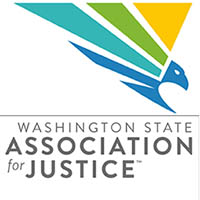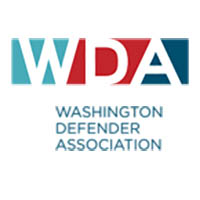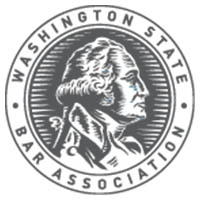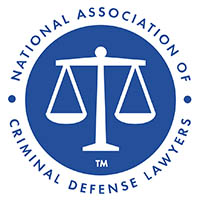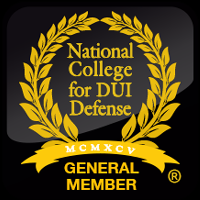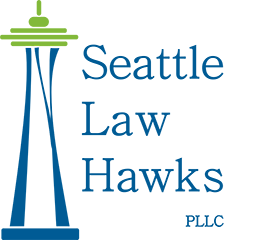
We win with tough defense - (206) 453-1800
Facing Negligent Driving Charges? Heres What to Know.
In Washington State there are two levels of Negligent Driving. Negligent Driving in the Second Degree (Neg 2) is a civil traffic infraction, while Negligent Driving in the First Degree (Neg 1) is a criminal offense.
Both charges require the prosecutor to prove that the driver was 'operating a motor vehicle in a manner that is both negligent and endangers or is likely to endanger any person or property. 'Negligence is defined as (1) 'the failure to exercise ordinary care, and is the doing of some act that a reasonably careful person would not do under the same or similar circumstances' or (2) 'the failure to do something that a reasonably careful person would do under the same or similar circumstances.' To increase Negligent Driving to the criminal offense of Neg 1 the State must prove that, in addition to driving negligently, the driver was exhibiting the effects of having consumed alcohol, drugs or an inhalant.
The traffic infraction of Negligent Driving 2, RCW 46.61.525, carries a $450 fine and is reported on all driving abstracts, including those provided to insurance and employers. It can have severe consequences on one\'s job or financial situation. If the driver has a probationary or intermediate license, is on a deferred finding or has other tickets, it can be grounds for a license suspension or revocation.
In my experience, about 50% of Neg 2 tickets are issued as the result of an accident. It is the policy of almost every police agency to determine who is at-fault and issue an infraction to that driver. These accident-related tickets are problematic for the prosecution in a number of ways. First, and foremost, the facts may not support the charge; it may simply be that the accident was simple an accident and not the result of improper or illegal driving. Even if there are facts to support the allegation of driving in a negligent manner, the facts are often inadmissible hearsay or not properly documented and sworn. Our office has a very high success rate getting dismissal of accident-related Negligent Driving infractions because the prosecution either cannot get the evidence admitted or the evidence is insufficient to prove the charge.
The other type of Neg 2 tickets, those in which the officer was a witness to the driving, are more difficult to defend. In addition, the prosecution can be very aggressive with this particular infraction. Hearsay is often no longer an issue and the prosecution can call the officer as a witness to clean up any deficiencies in the paperwork. Judges often give undue weight to the officer's observations as a professional witness, as well. This does not mean a person is out of luck if the officer is a witness to the 'negligent driving.' It does mean it\'s even more important to have competent legal representation. A good traffic attorney will be able to find the problems with the case and exploit the 'technicalities.' Decisions such as whether or not to subpoena the officer or request certain evidence can make or break the defense. The first goal in all criminal defense work is to get the case dismissed. It is equally important to understand when it is time to cut one's losses and negotiate an outcome that keeps the infraction off the driver's record.
If you have received a ticket for Negligent Driving in the Second Degree you must request a contested hearing within 15 days of the incident(or within 18 days of the date of mailing if the ticket was mailed by the court).
The criminal charge of Negligent Driving 1, RCW 46.61.5249, is a misdemeanor with a maximum 90 days in jail and a $1000 fine. If found guilty the driver can also be put on probation for 2 years and required to follow certain conditions, such as alcohol and drug treatment. SR 22 insurance filing will be required for a minimum of 3 years. While there is no license suspension as the direct result of a conviction for Neg 1, a conviction can have a number of license consequences if the individual has a probationary or intermediate license, too many traffic violations or a commercial driver\'s license. Other potential collateral consequences include problems getting a job because of a criminal record, exclusion from Canada and can be a violation of any earlier suspended or deferred sentence. Any time you are charged with a crime you should have an attorney. Because Neg 2 can be seen as an infraction-crime hybrid of Neg 1 and DUI, you should consider an attorney who has experience fighting both traffic tickets and alcohol/drug-related crimes.
Negligent Driving in the First Degree is also a popular charge for DUI amendments. Is often considered a major victory if the attorney is able to negotiate an amendment from DUI to Neg 1. This is done to avoid licensing consequences, interlock ignition device requirements, mandatory jail and fines and the stigma of DUI. Also, if your DUI is amended to Neg 1 you can ask the court to vacate and dismiss the charge ten years after the incident (you cannot expunge a DUI conviction). If the original DUI charge is a second or subsequent offense the driver will not avoid the interlock ignition device requirement and the conviction could be a violation of previous DUI sentences.
Like Neg 2, a 'straight Neg 1' (meaning the charge is not the result of a plea bargain from DUI, Reckless Driving, Minor DUI, etc...) can be difficult for the prosecution to prove. In addition, the State must prove the negligence 'beyond a reasonable doubt,' instead of the 'more likely than not' level of proof need for a traffic infraction. The prosecutor must also prove that 'exhibiting the effects:'
(1)of having consumed liquor, marijuana, or any drug, by showing that the 'person has the odor of liquor, marijuana, or any drug on his or her breath, or that by speech, manner, appearance, behavior, lack of coordination, or otherwise exhibits that he or she has consumed liquor, marijuana, or any drug, and either:(i) Is in possession of or in close proximity to a container that has or recently had liquor, marijuana, or any drug in it; or(ii) Is shown by other evidence to have recently consumed liquor, marijuana, or any drug.'
(2) of having inhaled or ingested any chemical by establishing that the 'person by speech, manner, appearance, behavior, or lack of coordination or otherwise exhibits that he or she has inhaled or ingested a chemical and either:(i) Is in possession of the canister or container from which the chemical came; or(ii) Is shown by other evidence to have recently inhaled or ingested a chemical for its intoxicating or hallucinatory effects.'
Unlike DUI, if the Neg 1 is based on drugs, it does matter whether the alleged drug was legal and prescribed. There is what\'s called an affirmative defense to Neg 1. This allows the judge to instruct the jury to find the driver not guilty if he or she was taking prescription drugs at the levels prescribed by his or her doctor.
Finally, it is important to understand that any criminal conviction can be devastating. More companies are doing thorough background checks and choosing not to consider candidates with a criminal past, no matter how minor. If you've been arrested or charged with Negligent Driving you should get legal representation as soon as possible.
